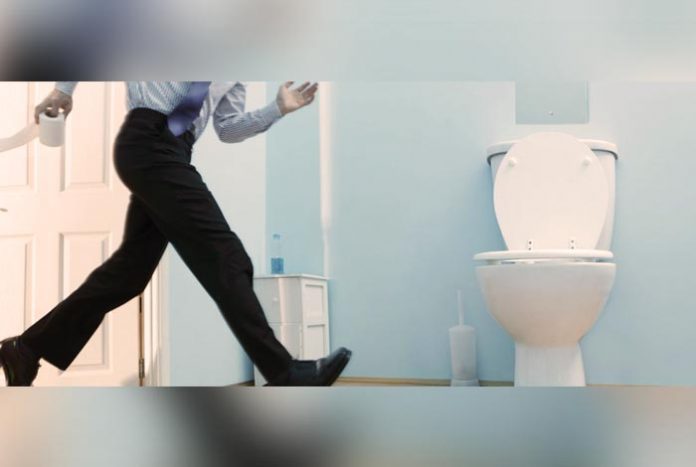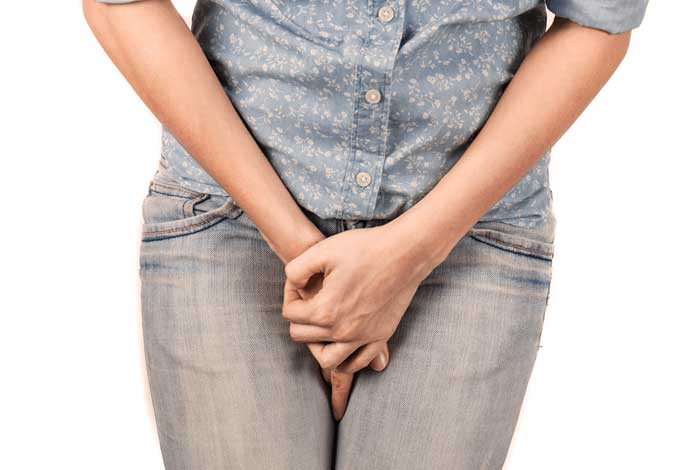
Frequent urination can be a symptom of many problems. If you have a bladder that’s about to burst, sprinting to the bathroom is common. Your frequent trips to the washroom are no fun and may be pointing at something serious. Maybe you stopped for the third time at a gas station in the two-hour trip to your friend’s place. Or it could be that you got up for the fourth time during the flight or perhaps you could not control while watching Avengers: Infinity Wars and left hurriedly for the bathroom in the theater. You may be wondering: Is peeing too often more than just annoyance and could it be a symptom of underlying medical problems.
The answer to this may not come easy. Experts from the domain of frequent urination or urinary incontinence or lack of control over defecation and urination are not sure how to define overactive bladder (OAB)
The International Continence Society came up with a definition in 2002 according to which it is urgency to pee with or without losing control, frequently and at night and no other symptoms. But this definition does not tell us the number of bathroom breaks that can be termed as too much. The thin line between too much urination and OAB is crossed when frequent urge to pee and inability to control bring distress to the person
Overactive bladder is something which is vague as what bothers one may not bother another. For an example somebody may make 40 trips to the washroom and may not consider it as a problem of frequent urination while someone else may need to go every two hours
And not only is this definition unclear but also it fails to encompass the condition of leakage- a type of incontinence or frequent urination when urine is suddenly released or leaked without a buildup or sense of urgency and more commonly and exclusively found in women.
Una Lee, urologist at Virginia Mason Medical Center Clinic, Washington says that many women have to deal with stress incontinence or leakage. They may experience it during exercise. In fact, they feel it is normal and consider it as an aftereffect of their pregnancy or getting older.
The International Continence Center has considered revising the definition of OAB quite many times but the definition still remains as it was.

Lee conducted a survey[1]and prepared a questionnaire for his colleagues and discussed the definition of OAB. The opinions can be grouped in four categories: The current definition of OAB is adequate and apt; it’s more about a group of symptoms than a disorder; expansion of the definition of OAB to include leakage; OAB is a marketing term so that people may ask their docs about medicines like Vesicare or Detrol. At a conference a famous urologist Richard Millard went on to ask if OAB is a real condition or just a ploy.
So basically, we cannot say what isn’t normal for the bladder is the fact that there is no clarity on what exactly is normal. We cannot say for sure that if you have a certain number of urinations in a day, you have an overactive bladder. Chi says that it could be every three to four hours while you are awake but there is too much of variation.
Some lifestyle factors may result in an overactive bladder. And people chugging too much water or other liquid may have to pee more often. Also, people who consume diets that have bladder irritants in them like caffeine and spicy foods need to go to loo quite often.
Some of the drugs are also be the reason behind frequent urination. It can be seen with Adderall, so says Jamin Brahmbhatt, urologist at Central Florida College of Medicine. Something drugs that make the metabolism fast will make you go more often.
Emotional state when negative also affects the urinary systems. A study[2]conducted in 2015 found that patients from Washington University School of Medicine experienced increase in symptoms of urinary incontinence while they reported stress.
Another study considering the same recruits revealed at around 30% of the urinary incontinence patients suffered sexual trauma in childhood[3].
In a normal person without OAB, stress causes episodes of frequent urination. The mechanism through which the neurons fire together to make you go to the washroom are complex. So urinary incontinence could be because of consumption of certain types of foods or psychological states of stress or it could signify something more than that.
OAB is a symptom related to various conditions[4]like diabetes, bladder tumors, enlarged prostate, multiple sclerosis, urinary tract infection. People may not discuss their problem of overactive bladder with their doctors. It could be that they do not treat the issue of urinary incontinence as that of medical urgency or they may be too embarrassed to discuss about it.
There are many treatments for overactive bladder. Whatever may be the issue, you must get checked. Depending on the intensity of the condition, treatments may entail medication, surgery, physical therapy, mental management and lifestyle changes.
Lee suggests distraction techniques and pelvic exercises to help you through the time till the bathroom becomes available when you are hit by an urge to pee. You could sing a song, visualize a vacation spot, count till 100, identify all things that are red in a room. This teaches your bladder and brain to be in control.








